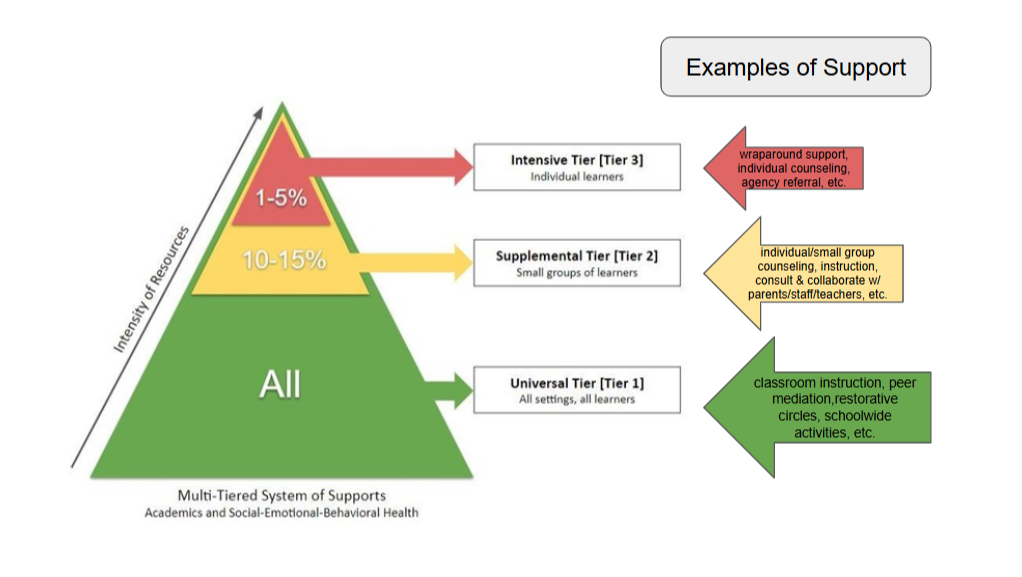Multi-Tiered Systems of Support (MTSS)

MTSS involves universal support for all, targeted intervention for some, and intensive intervention for a smaller number of students.
Tier 1 includes universal, evidence-based, high-quality instruction and support for all students. Tier 1 is designed to prevent skill gaps and challenges from developing, and to catch them early when they do.
Tier 2 provides evidence-based targeted intervention and support, usually delivered in small groups, to address a student’s gaps in skills. Tier 2 instruction layers on top of and does not replace tier 1 instruction and supports provided to all students.
Tier 3 involves intensive intervention and support, usually delivered more often, in smaller groups, and more individualized to support significant and/or persistent skill gaps and challenges.
Examples of Tier 1 Supports
Peer Mediation serves as an essential Tier 1 support because its goal is prevention and skill development for all students, thereby improving the overall school climate.
Benefits of Peer Mediation
Increased Conflict Resolution Skills: Students learn concrete, positive, and non-violent ways to handle disagreements.
Enhanced Communication: Students practice "I statements" and active listening, leading to better interpersonal relationships.
Greater Empathy and Perspective-Taking: Mediated conversations require students to hear and acknowledge the other party's feelings and viewpoint.
Increased Self-Efficacy: Successfully resolving a conflict builds self-confidence and self-management skills.
A Restorative Circle is a structured, inclusive group process where all participants (students, and often staff) sit in a circle to build community and strengthen relationships.
Benefits of a Restorative Circle
Improved School Culture: Fosters a more positive, inclusive, and emotionally safe learning environment where students feel respected and connected.
Reduced Conflict & Misbehavior: By strengthening relationships and teaching social-emotional skills proactively, the foundation for conflict is reduced.
Increased Student Engagement: When students feel their voice is valued and they are connected to their peers and teachers, their engagement in learning often increases.
Equitable Support: Provides a structured platform to address social and emotional well-being for all students, which can help close discipline and achievement gaps.
Easier Conflict Resolution: When harm does occur, the pre-existing relationships and skills built in Tier 1 circles make responsive restorative conferencing (often a Tier 2 intervention) more effective.
